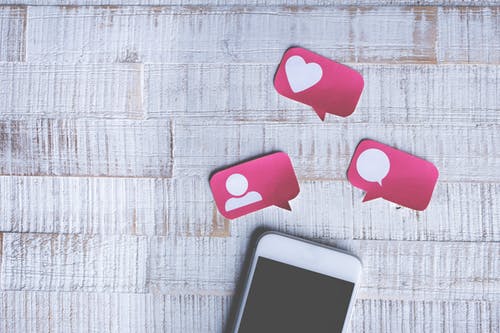The average american checks their phone 96 times per day. How you spend that time can influence your mood, your performance and your entire day. So then why do we spend it on apps that make us feel less happy and less productive? Today we spend 3x the amount of time on apps that make us feel less happy and productive than those that do. With social media apps like Instagram, Facebook, Twitter, and TikTok posting ever increasing usage numbers we wanted to take a deep dive into why Social Media Causes Stress and why we spend so much time on it.
The Slot Machine in Your Pocket
Social media apps have done an amazing job at increasing time on page. How have apps like Instagram and TikTok done such a great job when it comes to growing time on page?
Intermittent variable rewards are a reward schedule that gives you a payout infrequently. Imagine pulling the lever at a casino. You win sometimes; you lose sometimes. The probability of winning isn’t zero but it also isn’t 100. Most studies show that a win rate between 30-50% keeps people pulling the longest. Every time we post, we are pulling the lever to see how much engagement our posts will get. Every notification we click on, we are pulling the lever to see if it was from someone interesting or someone we already know.
How do you increase time on page? You take notes from the machine in the casino that made more money than amusement parks, movie theaters, and major league baseball in 2017.
Now we know why we spend our time there, but why does social media cause stress?
The Grass is Always Greener
If you’ve ever looked at a post and wondered why you weren’t on the beach or felt like you were doing something wrong, you’re not alone. We know our lives, but we don’t know the lives of others. What things are people doing that can inspire us and that can entertain us? Distract us? A big part of the allure of social media is to explore the lives of others.
This creates a grass is always greener effect, where exploring the lives of others seems better than spending time exploring our own lives. This uncertainty creates drive to see what others are doing. The extra comparisons that we make on social media can lead to feelings of anxiety that we’re doing something wrong, or even outright stress and depression.
Social Isolation, Social Media and Stress
Some time that we spend on social media can feel like social time, but unless you’re directly talking with friends on Messenger or a post, it usually doesn’t have the same benefits. Scrolling through posts for 30 minutes in place of a video call rarely yields the same long term benefits.
Although social media made it easier for us to connect with thousands of people from all over the world, it also gave us reason to make extra comparisons between ourselves and others. It led us to think that we’re spending time socially when really we are passively looking at ways our own lives could be better.
So the next time you reach for your social apps, think first about what you’re hoping to get out of the experience and how much time you want to spend there, before jumping into the rabbit hole.
